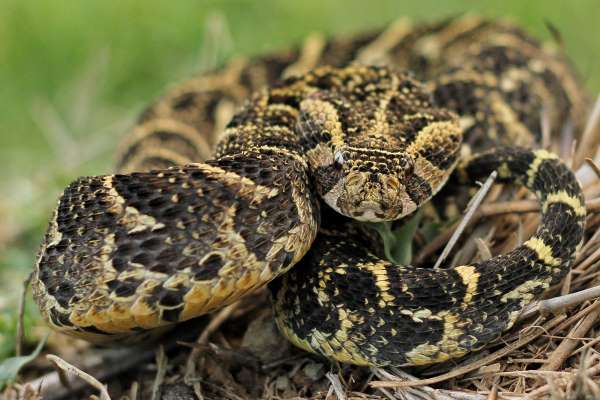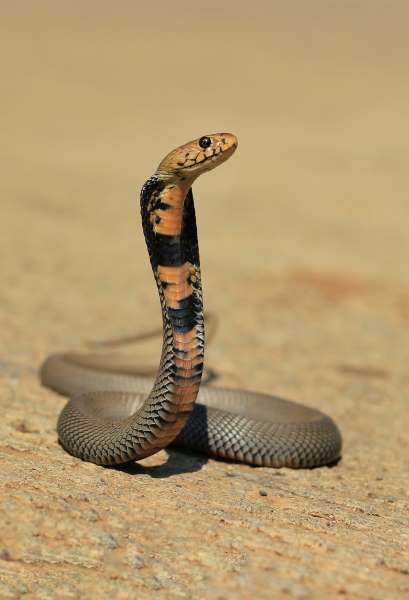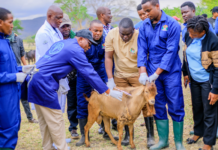Having the privilege of living on a farm comes with unique risks, like dealing with snakes. Farms provide ideal conditions for flourishing rodent populations, adequate hiding places for snakes, and reduced snake prosecution allowing healthy population numbers. When discussing the topic of dealing with snakes important questions include: “Are snakes good for my farm, how can I ensure safe interactions when dealing with snakes, and what to do when livestock suffers from a snakebite?” In this article, Nick Van Der Walt, hopes to answer a few of your questions and increase awareness about the importance of snakes in the rural setting.
- Are Snakes Good for My Farm?
Snakes have a bad reputation, especially in African culture, but snakes are great to have on a farm. Snakes should be seen as a blessing and not a curse. Most snakes on the African continent eat rodents at some stage of their lives. Rodents are carriers of various diseases like Rabies, they can destroy crops and feed stores in large numbers, and cause damage to the electrical wiring of vehicles and buildings. A single snake can control thousands of rodents by preying on the breeding adults! So instead of reaching for a spade or pesticides which have far-reaching consequences for all sorts of other wildlife, rather just leave the snakes to do their jobs.
- How Do I Ensure Safe Interactions With Snakes

A Mozambique Spitting Cobra spreading a hood ©Shane Peel
Educate yourself about the different snakes found in your area, along with their habits and snakebite protocols. The safest thing to do when encountering a snake is to simply leave it alone, remain calm, and back away slowly. At times it might be necessary to remove a dangerous snake and we highly recommend getting appropriate training before you attempt this. Teach children to stay away from snakes even if they look dead, snakebite from a dead snake is still possible when handled recklessly. Do not try to capture the snake for identification purposes, as this is not necessary for the administration of antivenom in the event of a snakebite.
- How Do I Protect My Livestock From Snakes On The Farm?
Even though snakes are beneficial to every farm there is no denying that they can cause financial damage to livestock as they often eat chicken eggs as well as the chickens. An animal suffering from a snakebite could also lead to severe injury or even loss of the animal. There is unfortunately no product available that will repel snakes and the best thing to do to keep your livestock safe is to decrease the number of woodpiles, scrap metal and compost heaps in your animal camps. The less places there are to hide the less is the chance of encountering a snake. Where chickens are kept ensure that there are no small holes or cracks for the snakes to crawl through and elevate the coups off the ground.
- How Do I Deal with Livestock Suffering from Snakebite?
Snakes are a part of livestock farming in Africa and will be encountered from time to time. Cattle and sheep grazing close to the ground are commonly affected with goats being somewhat less susceptible to snakebite events. Diagnosing a snakebite can be challenging with many bites being dry bites that don’t’ often result in visible injury. Notable symptoms may include puncture wounds at the site of the bite, bleeding, and swelling around the muzzle, nose, and dewlap areas as these are in closer contact with the ground than other body parts. Swelling at the site of the snakebite can become infected or necrosed and result in an abscess. Swelling around the facial area can compromise and restrict breathing.
Cleaning the immediate area with an antiseptic solution such as iodine and light dressing is advised and restricting the animal’s movement as far as possible such as a holding pen to limit movement of venom throughout the body as far as possible. Keep the animal calm and in the shade. Antivenom is the only curative treatment available for a snakebite but impractical in the agricultural setting. Referral to a veterinarian is required for antibiotic treatment with a cephalosporin-based antibiotic for secondary infections and corticosteroid therapy such as dexamethasone. Tetanus toxoid can also be administered. Cattle usually have a positive outcome due to their large size and mass as opposed to smaller animals such as sheep.
Access Professional Development specialises in Snake Safety Training across the African continent with many years’ experience in the Emergency Medical Care and Agricultural fields. Nick Van Der Walt has a BTech degree in Emergency Medical Care and a National Diploma in Agricultural Management.









